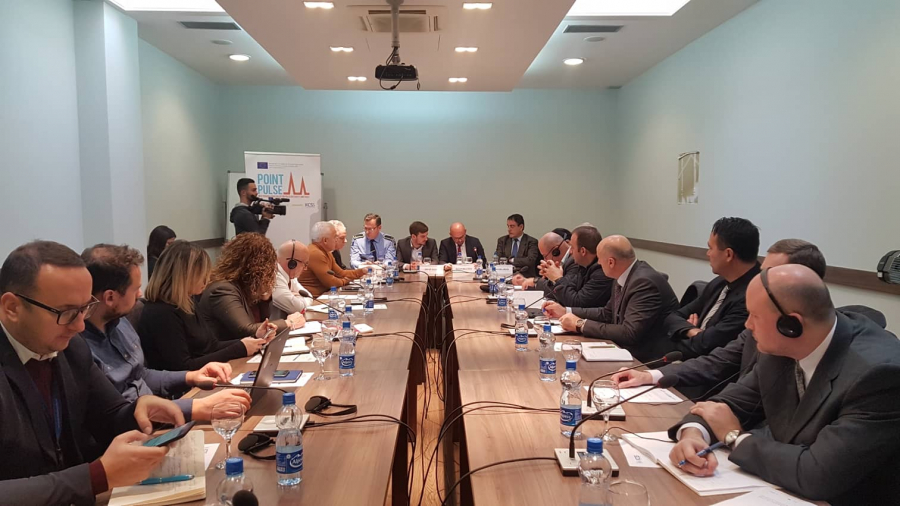21/12/2018

Kosovar Centre for Security Studies (KCSS), in the framework of regional project POINTPULSE, on 21st of December, organized the conference in Prishtina on police integrity in Kosovo titled “Strengthening Integrity in the Kosovo Police”. The conference was focused on Human Resources management on Kosovo Police and Police Inspectorate of Kosovo role in maintaining and strengthening the Integrity in Kosovo Police.
Kosovo Police representative Mr. Brahim Sadriu pointed out that Kosovo Police has started the implementation of the Integrity Plan in January 2018 and on this phase the process was focused on the creation of reporting chain. According to Mr. Sadriu 3 reports on a 3-month period were conducted so far, while it is expected that the final report on the implementation of Integrity Plan will be finished on the first period of 2019.
Mr. Bujar Mustafa, Police Inspectorate of Kosovo representative stated that PIK is continuously conducting inspections on Kosovo Police., PIK considers that the aspect of human resources management at KP is positive given its dynamics in this institution. Troubles have been encountered in the distribution of police officials to adequate positions for their ranks. Moreover, PIK considers that there is room for improvements in the management of personnel files and they point out that the regulation of working relation on KP should be revised and improved.
Mr. Nuredin Ibishi, security expert, emphasized the importance of the functionalization and implementation of the integrity test. The integrity test is foreseen to be performed by PIK and the regulatory document exists, however it was not effective in practice. Mr. Ibishi also highlighted the necessity of drafting the integrity plan for PIK, as an important step in guaranteeing integrity in Kosovo’s security architecture.
The conference was organized in the framework of the project “Western Balkans Pulse for Police Integrity and Trust”. The project is supported by the European Union through the “Civil Society Facility” program. The views expressed in the project are exclusively the views of KCSS and do not necessarily reflect the views of the European Union.